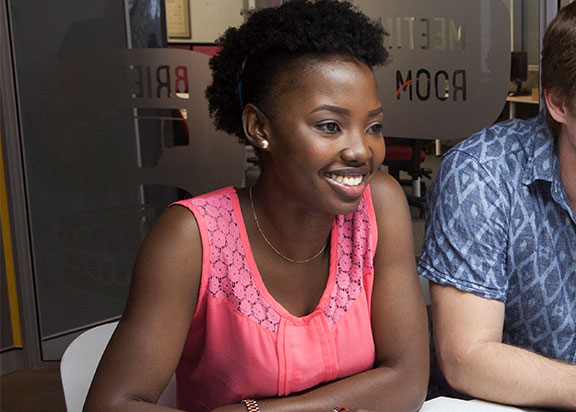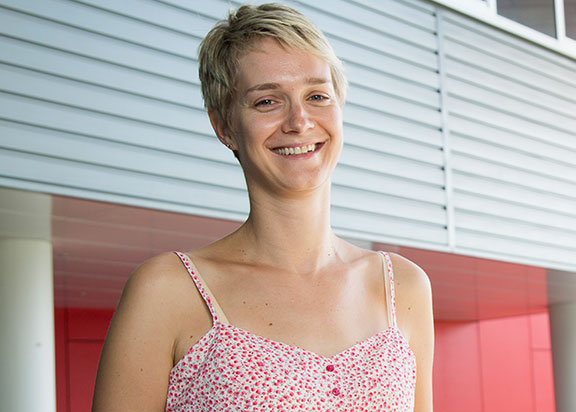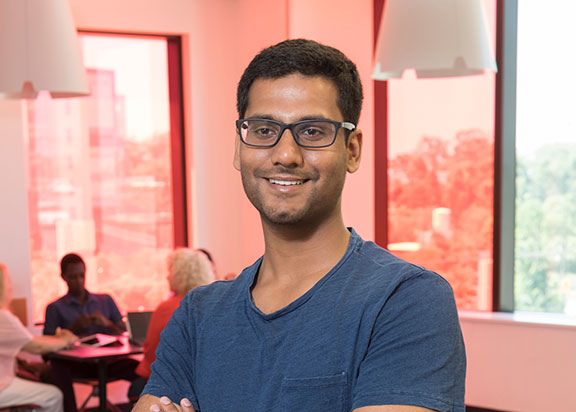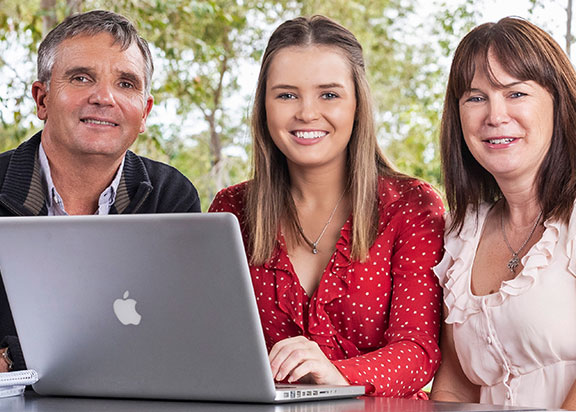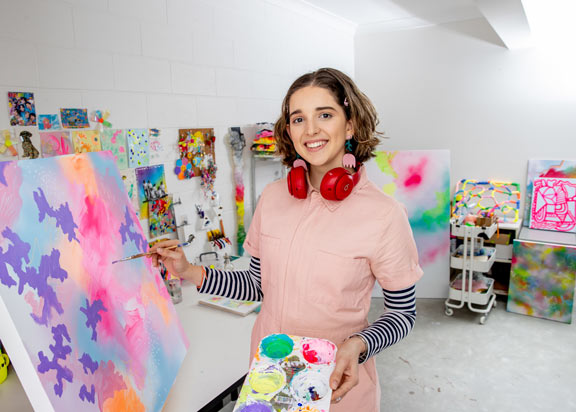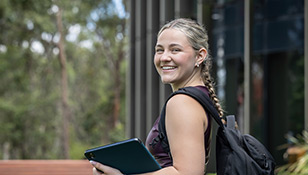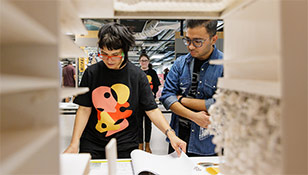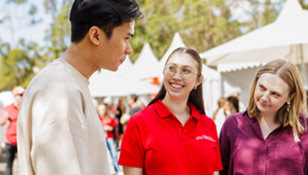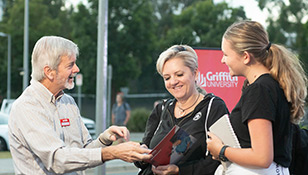Careers expos and open days explained
Careers expos showcase a diverse range of post-school options. Representatives from education providers, employers and industry groups attend to promote the careers, courses, training and employment opportunities they offer. These events cater to many audiences: high school students, professionals looking to upskill and people who want to switch careers.
When it comes to universities that go to events like the Brisbane Tertiary Studies and Careers Expo or the Gold Coast Careers Festival, you will find it ranges from local institutions, to those from interstate and even overseas. It’s a good opportunity to compare several universities at once, grab their study information or sign-up to an email list to stay in touch.
Open days, on the other hand, are hosted by a single institution. They give prospective students and their families the freedom to check out and tour a campus. Attendees can also get in-depth information about degrees, support services and student life. It’s also an opportunity to speak directly to students about their university experience and study highlights.
Open days are also highly interactive, with many institutions organising hands-on sessions that take you into the spaces where your teen will learn. For example, if they were interested in studying aviation at Griffith, they would get to tour the virtual lab where our students use flight simulators and even get to try one for themselves.
While open days cater to a similar audience as career expos, there’s a greater focus on catering to prospective students, who are usually comparing degrees, student experiences and support services.
Should I attend these events with my teen?
There are many benefits to attending careers expos and open days with your teen, but you are not required to attend, especially if your teen prefers to go on their own. While you can play a valuable support role at these events, it’s important that you let your teen take charge of what to do on the day. You can still help them prepare, with our tips below, to get the most out of these events.
What to expect at careers expos and open days
Careers expos showcase a wide range of study options and career opportunities. You will get to meet a diverse range of representatives from universities, TAFE, employers, recruitment agencies and industry bodies. They usually feature:
- exhibitor booths
- seminar talks
- admissions support
- competitions and giveaways
Open days will have lots of information sessions on degrees and entry requirements that can help prepare your teen when it comes time to apply. They usually feature:
- campus and facility tours
- Q&A sessions
- hands-on demonstrations
- student support service information
- accommodation tours
- competitions and giveaways.
How to get the most out of these events
Plan your day
There’s a lot happening at these events and your teen will need to make smart use of their time by prioritising the sessions and activities they want to attend. They can maximise their time by checking out the event schedule before going and building their own timetable. Many institutions offer convenient and free online timetabling tools, so check the open day website before creating one.
Get familiar with the layout
While careers expos are usually held in venues like convention centres, making booth navigation simple, you should still familiarise yourself with the expo’s map. You don’t want to miss out on information sessions or other activities that might not be held on the show floor.
Universities, colleges and TAFE campuses on the other hand, tend to be larger and less intuitive to get around. Make sure your teen leaves enough travel time to walk between the different activities and sessions they want to attend. You should also check the campus map for where to park, but for some campuses it might be easier to use public transport.
Figure out what matters to your teen
Before attending any of these events, have a quick chat with your teen about what they want to get out of attending. Explore topics like:
- what do you value?
- where do you want to study?
- what type of institutional culture matters?
By thinking through these questions, your teen will have a better idea of the type of experience they want. If your teen is undecided, it’s still worth going to a careers expo or open day. They’ll get to speak to lecturers and students, while also trying out things in a lab or a learning space, to get a better idea of what they want to study.
Explore the campus
Open days are all about exploring and experiencing the institution you are visiting. If your teen is interested in a specific degree area like musical theatre, try and see all the relevant facilities to get a better idea of what your teen can expect as a student.
Even if your teen is adamant about a specific degree, it’s worth keeping an open mind and checking out other study areas that might appeal to them. There might be a degree or double degree combination that suits them perfectly.
Universities also host other facilities, including coffee shops, bars and restaurants, convenience stores and book shops. Your teen might also want to check out if there are any sports and recreation facilities as well, including whether it has a gym or a pool, especially if they plan to live on or near campus.
If your teen plans to live on campus, make sure they book into one of the accommodation tours. Check out the typical rooms that are available to rent, common areas and what’s included in their stay like wi-fi, laundry facilities, parking and security.
It’s also important that your teen gets familiar with the different transport options to a campus and the associated costs. If they need to drive, do they need a permit to park on campus or can they take the bus or train into uni each day?
Get your questions ready
Whether you are attending a careers expo or an open day, everyone you meet is ready to answer your teen’s questions.
It pays to do some homework ahead of time, for open days try to review the website of the university you will visit and jot down any questions that your teen wants answered. If your teen needs help with this, they could turn to AI tools like ChatGPT to suggest some key questions to ask.
On the day, speak to as many people as you can including students, lecturers and support staff to find out as much as you can about degrees, opportunities, and support.
If your teen is considering a gap year, they should find out the best way to do it. In most cases, it’s better to apply and then defer, but your teen should speak to support staff about their options.
Working it out together
Whether you attended with your teen or they went solo, now is the time to sift through all the study guides, brochures and flyers to figure out what happens next. Use these materials as a chance to discuss and refine your teen’s plans for their career.
New International Academic Merit Scholarship
Offering a 20% tuition fee reduction to eligible international students starting in 2026 and 2027, no separate application required!

Scholarships
We offer hundreds of scholarships, providing financial support to a wider range of students.

